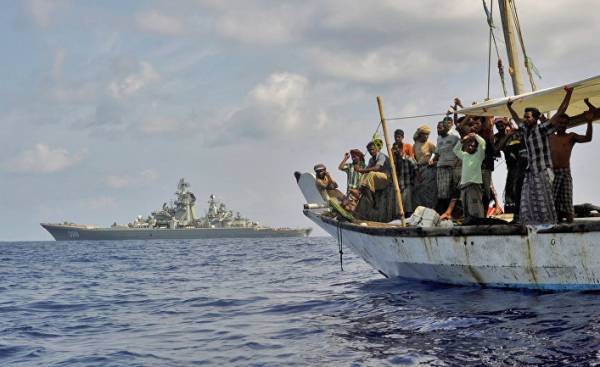
In March, China conducted an operation in the Gulf of Aden off the coast of Somalia to release captured pirates Panamanian vessel. We are talking about one of the first operations of this scale for the Chinese Navy. Beijing should fulfill its international obligations.
Atlantico: In March, Chinese Navy conducted an operation to liberate the Panamanian cargo ship from Somali pirates. Unusual to see Chinese military intervention so far from his territory? And whether to consider it as the desire of Beijing to go beyond economic investments in the region?
Jean-Vincent Brisset: We have been aware of the violent (but secretive) actions of Chinese agents outside the territory of the country, but it was mostly about intelligence operations to capture fugitive dissidents and “criminals”. Changes in the approach to the deployment of military forces outside the national territory (or what Beijing believes such) is a more recent phenomenon. China for a long time was content to grant the UN observers and did not participate in the fighting troops.
China’s participation in combating piracy in the Gulf of Aden, it was announced on 18 December 2008 and confirmed three weeks later by the emergence of two warships and support ship. The stated mission was to protect Chinese interests. In addition, it contributed to the image of a responsible great power that wants to shape China. Finally, the Chinese army had the opportunity to gain experience in remote offshore operations. In 2011, the celestial Empire held the region’s first large-scale operation, providing for the evacuation of 36 thousand working in Libya Chinese. Was involved mainly leased from the Greek ferries as well as military resources. Chinese military vessel first came to the Mediterranean sea, and in Libya landed Chinese military transporters. In March 2015, China carried out in parallel with the Indian Navy to evacuate its citizens from Yemen.
The number of piracy attacks in recent years has decreased, but large ships was not their goal since 2012 to the March incident with a Panamanian vessel, which led to the intervention of China. April 8 followed by surgery was in Tuvalu cargo ship. It was carried out with the assistance of the Indian Navy and the Chinese military openly fired on defeat, eliminating two of the pirates. As during the evacuation from Yemen, China is not talked about cooperation with India, which, apparently, is explained by the pragmatism of working at the site of the events of the war.
China continues to justify its presence and actions sense of responsibility and economic interests. This argument cannot simply be wished away, because every year there are about 1.5 thousand Chinese merchant vessels, and that the Chinese military escorted many ships under the flags of other countries. Anyway, the desire to gain experience in operations, there is absolutely no doubt. Moreover, the improvement of Chinese capabilities in this area attracts the most attention. Overall, this presence is a sign of XI Jinping continued the strategy of his predecessors to create a “Maritime silk road”. In the region, the policy reflected in the form of a “pearl necklace”, that is, a series of strong points from the Chinese coast to the entrance to the Red sea.
— If you don’t count the fight against piracy, the emergence of a Chinese military base in Djibouti in 2016 is a sign of strengthening of positions of China outside of its zone of influence?
— China explains the establishment of a military base in Djibouti need to get the logistics strong point, although he already has these resources in the Pakistani port of Gwadar.
However, Gwadar is a commercial port, which is owned by Chinese company, as the port in Piraeus. Military base in Djibouti — the first facility of its kind outside the national territory, who openly recognized as such. While it is difficult to say where China could or would like to place other military bases. He did not do so in African countries, like in Venezuela. Beijing did not even created a “showcase” of its defense industry in some African States, which, no doubt, would be glad to accept it.
Anyway, the amphibious capabilities of the Chinese army is limited, although the needs are great, especially in the South China sea. In addition, participation in operations in the Gulf of Aden brings valuable experience in the conduct of the sea. The ability to conduct remote landing operations on a small scale in the direction of Djibouti will allow you to acquire important skills.
— How to interpret these signals in relation to others in the region countries, in particular France and USA in Djibouti?
The presence of China in Djibouti will be extended in a consistent way and to analyze it will be possible for implementation. Involved technical and human means will say a lot about the true plans of Beijing. Logistics can be restricted to fuel and repair parts but may include ammunition. Apart from logistics China, no doubt, will deploy communications and security divisions. The range of possibilities is very wide. In the field of communications it could be as simple instruments and the most modern means of wiretapping. Guard can be very simple and include capable of operation at a scale contingent. Finally, as already noted, there may be temporarily deployed any forces.
It will be interesting to see how Chinese military and civilian personnel of the base in Djibouti will cooperate with other forces at the local level, as with country authorities and with representatives of France and the United States.





